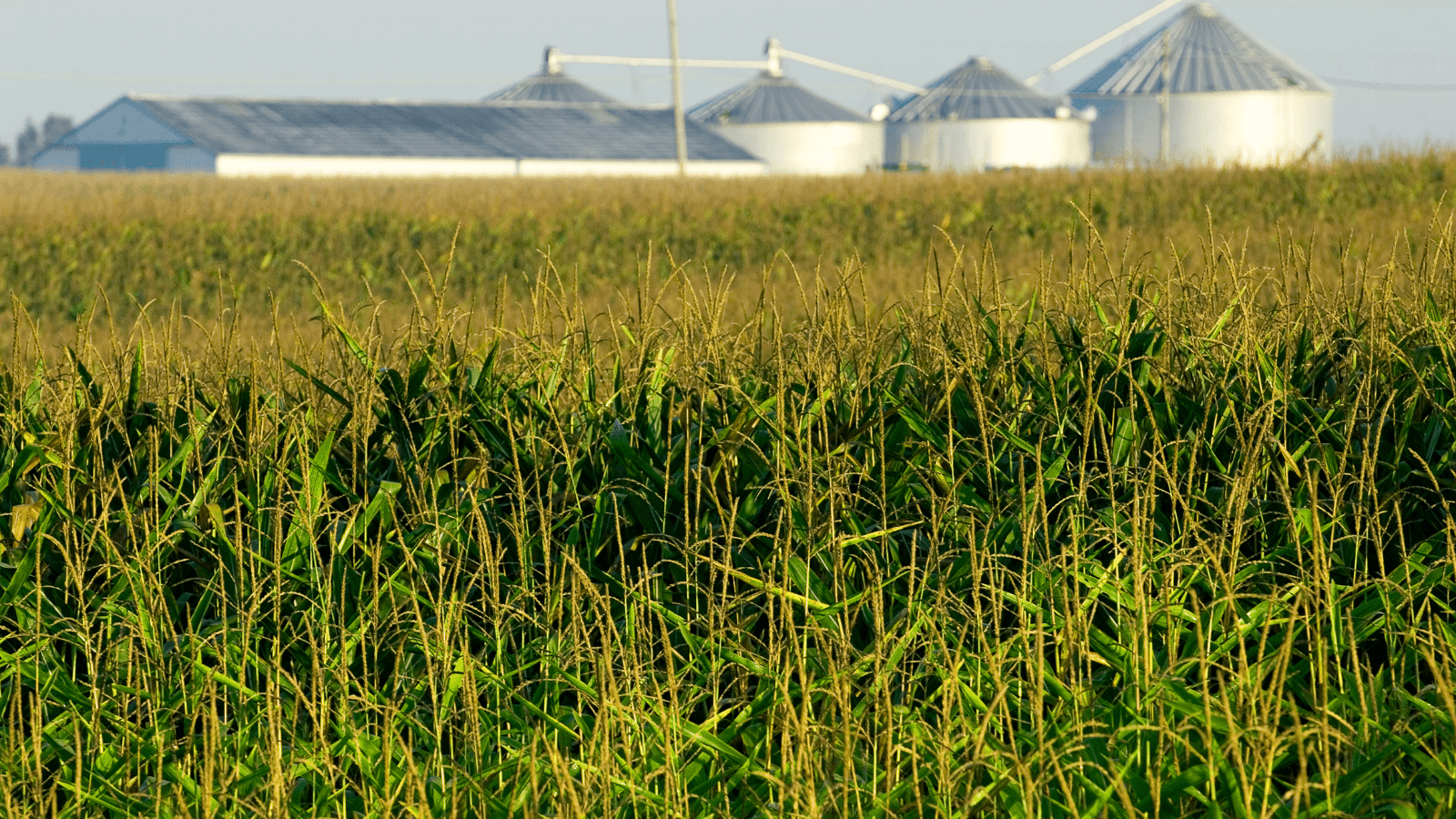By Rev. Tim Olsen
A cloud of dust billowed behind my truck as I drove on gravel roads to the multigenerational Seven W Farm near Paullina, IA. After talking with owner Torray Wilson and his dad, Dan, I was struck by the epiphany that the gravel road symbolized living, thinking, and working in ways different from those of “main road” agriculture. In the case of Seven W Farm, it means farming holistically.
Torray and Dan told me that they were introduced many years ago to the principles of holistic farm management, a concept influenced by Allan Savory, a Zimbabwean livestock farmer and former Rhodesian politician.
In summary, holistic management is considered a powerful decision-making framework that can help farmers create more sustainable, resilient, and profitable farms while also benefiting the environment and local communities (Savory Institute). It’s a long-term systems approach to managing a farm business.
The need to seek a different approach to farming began in 2005 due to an allergic reaction that Dan experienced to the use of farm chemicals. For Dan and his family to continue farming, they needed to discover another way to manage the farm business. That other way meant following the principles of holistic farming. For Seven W Farm that meant giving up the use of farm chemicals. By 2016 the farm was fully certified organic.
The farm’s website states, “We grow the kind of food that we want to eat so that you can too. We seek to raise our animals using methods that mimic their natural behaviors, while being financially and socially sustainable.” This way of managing their farm aligns with a scripture passage that Torray shared with me, “For what can be known about God is plain to them, because God has made it plain to them.” (Romans 1:19, NRSV)
What God has made plain to Torray and his family is that the components needed to raise high yielding crops without the use of imported resources are already within creation. Torray told of raising 200 bushels per acre of non-GMO corn without the common fertilizer inputs of nitrogen, phosphorus, and potassium. The 200 bushel corn was raised on healthy soils with the injection of a compost extract into the seed furrow at planting.
The compost extract is produced on the farm by utilizing the Johnson Su bioreactor model for composting. The Johnson Su bioreactor is a static composting system designed to produce high-quality, fungal rich compost quickly and efficiently that can be scaled for farms of several hundred acres or the backyard garden.
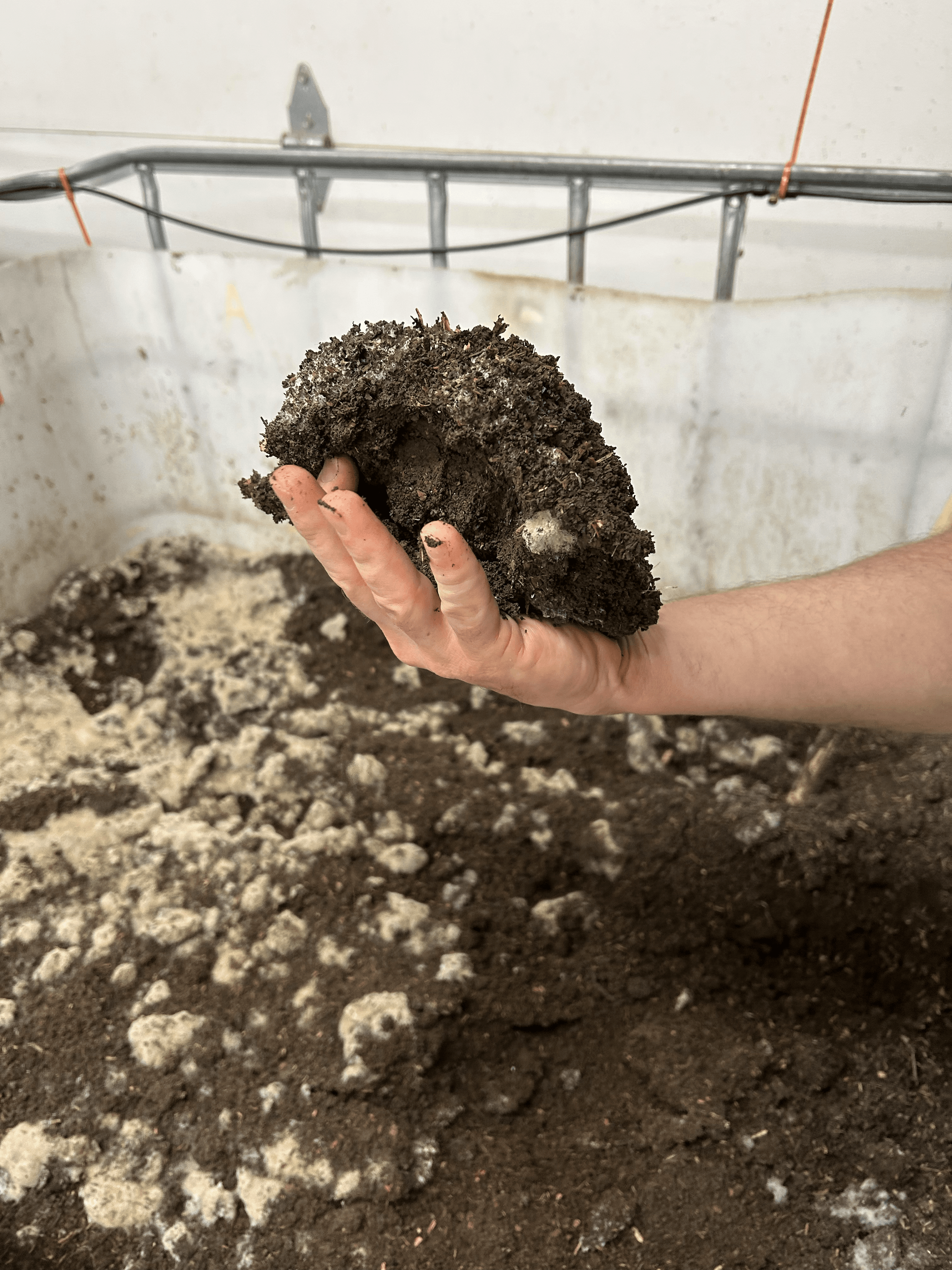
A handful of Johnson Su compost. Seven W Farm makes a liquid extract from the compost that is injected into the soil at planting time to regenerate soil biology.
The innovation on the Seven W Farm goes beyond the use of the Johnson Su compost extract. It also includes the management of the dairy cow herd that provides organic milk to Organic Valley cooperative. Watching Torray move his cows to a fresh paddock of grass, I was surprised by the mosaic of colors of the animals. Rather than the typical black and white of the prevalent Holstein cattle of conventional dairies, Torray’s cows are numerous shades and patterns of brown, black, and white. The color patterns represent the holistic farming principles of diversity and adaptability. The genetics used by conventional dairies are not adaptive to the grazing system used by Seven W Farm. By using the technology of artificial insemination, Torray is using dairy breed genetics from New Zealand where there is an emphasis on selecting cattle that yield good milk production by grazing diverse species of grasses.
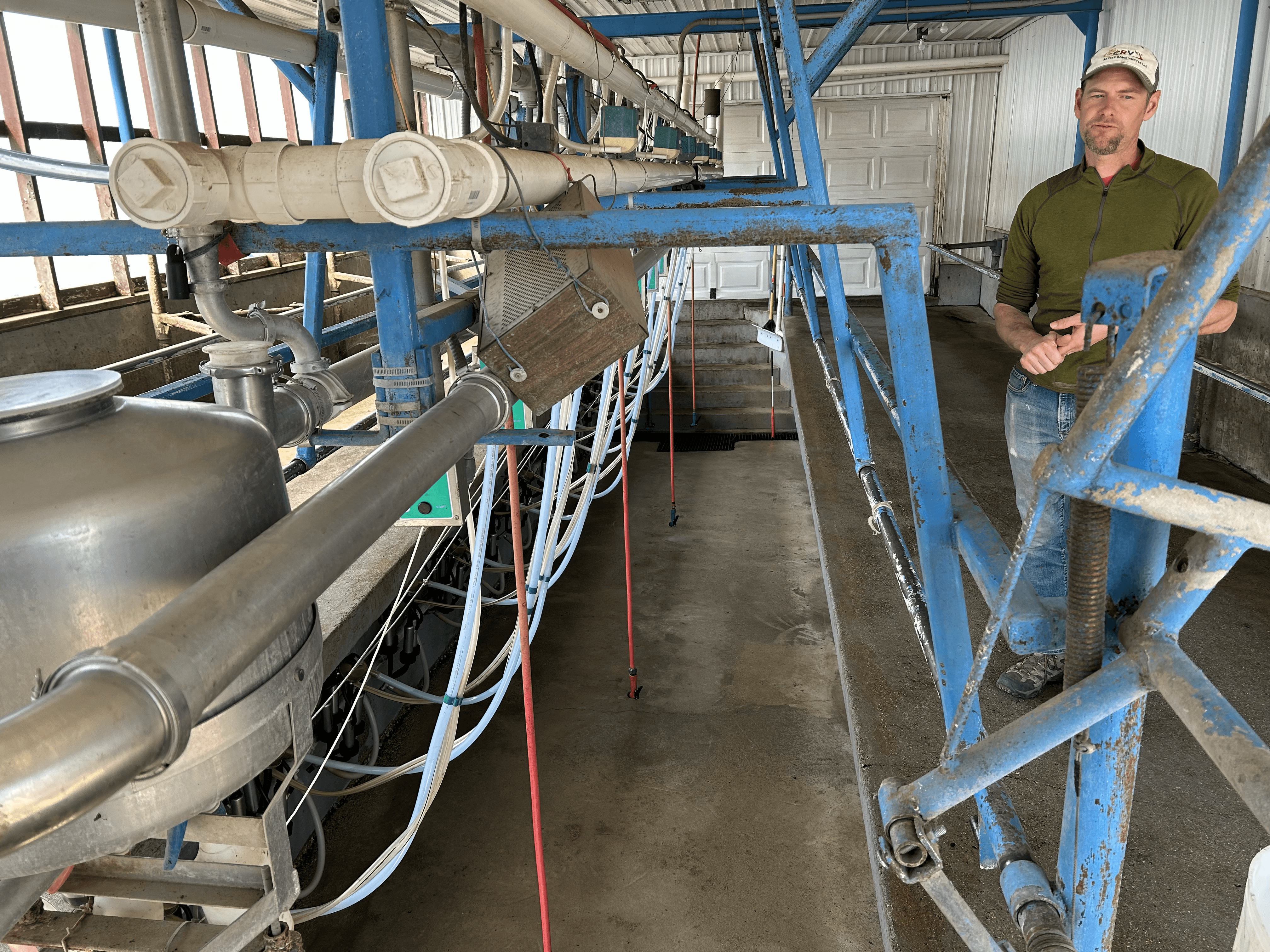
Torray Wilson showing the family's New Zealand style milking parlor.
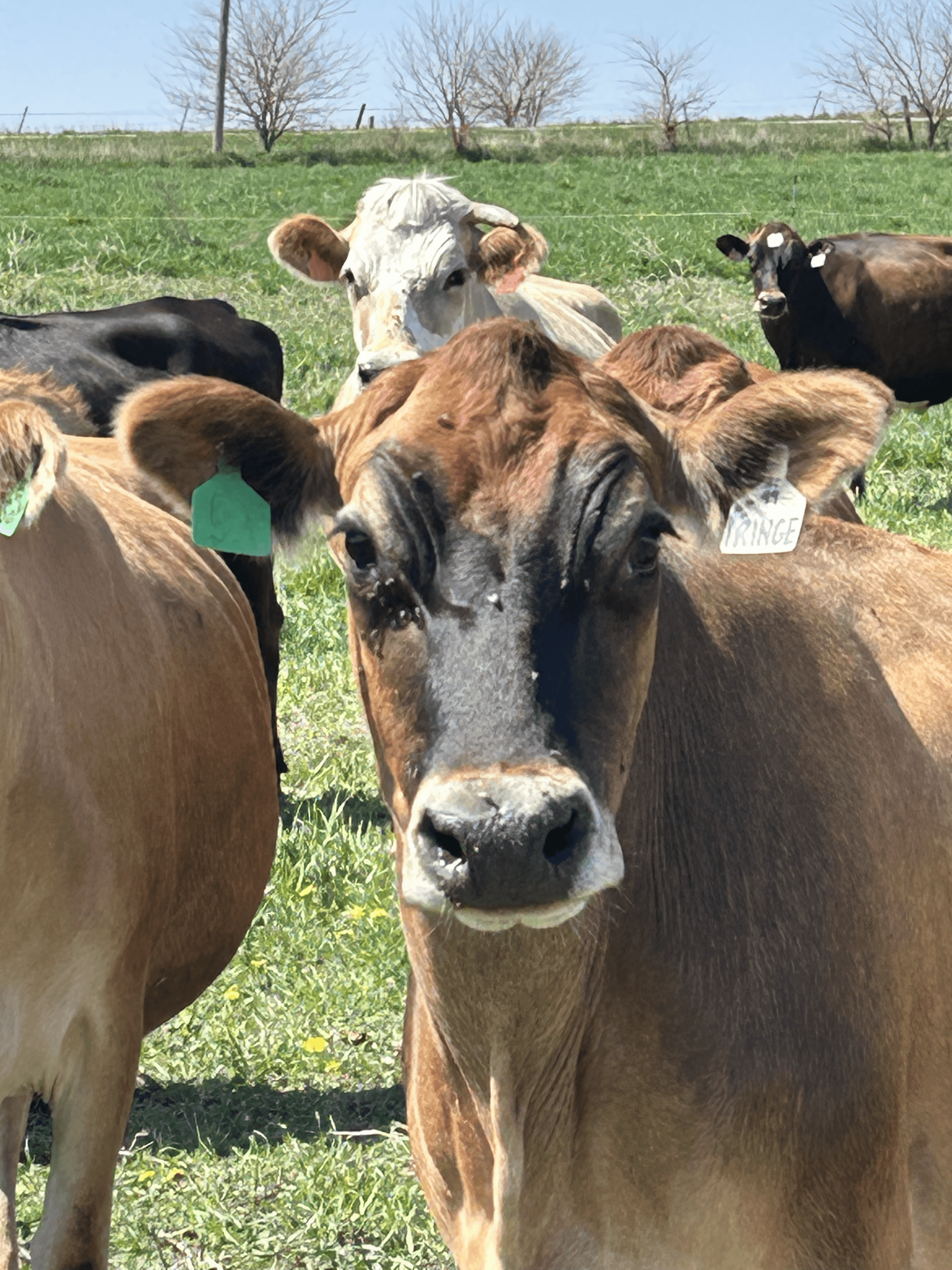
A contented cow being moved to greener pastures.
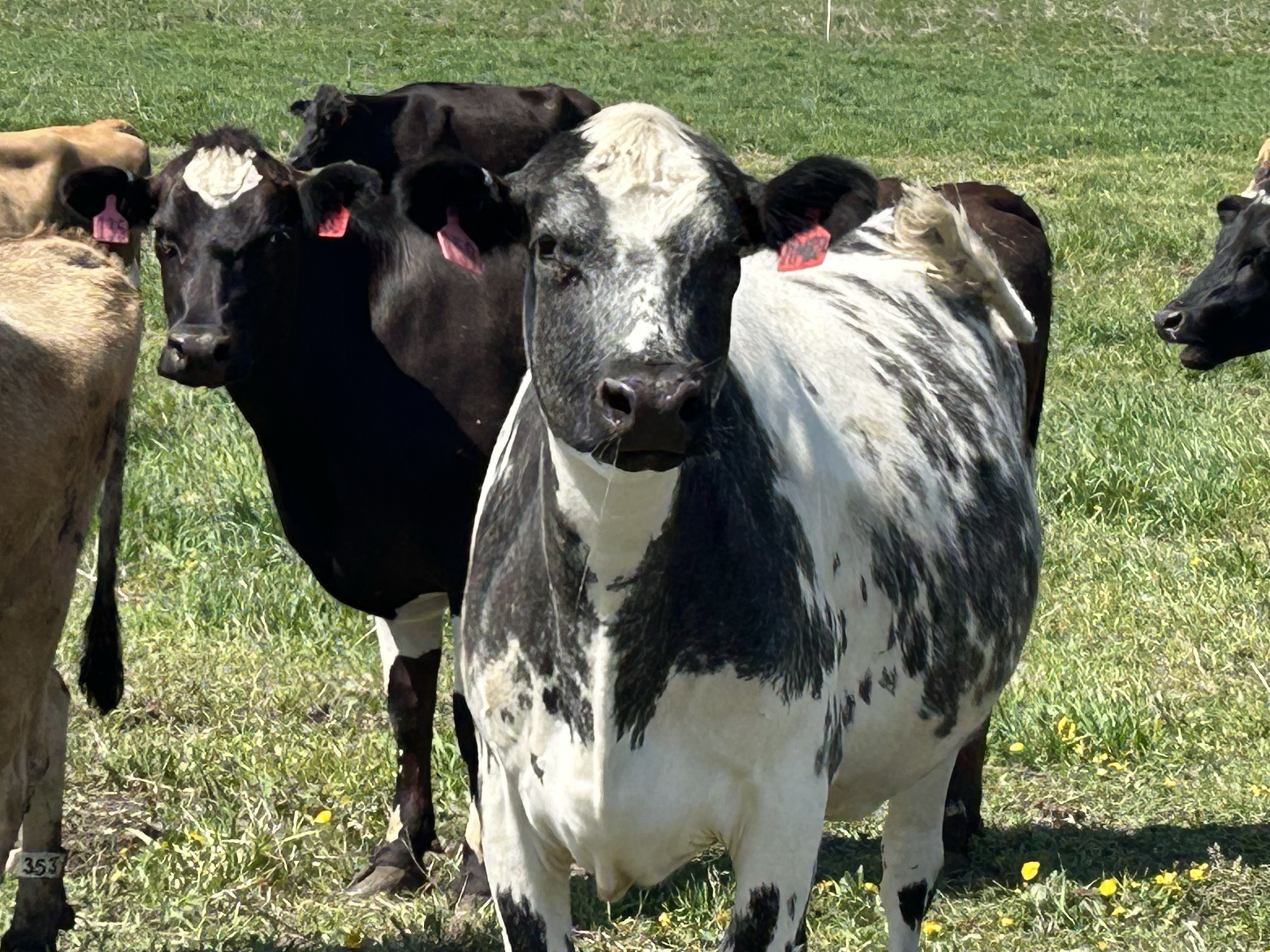
Seven W Farm cows come in an assortment of colors.
Along with the colorful cow herd was the cacophony of birdsong. There was a rich diversity of grassland bird species present on and around the grazing paddocks including the bobolinks, western meadowlark, dickcissel, grasshopper sparrow, and even a pair of ringneck pheasants. Hearing the birdsong I was reminded of Psalm 96:13, “Let all of creation rejoice before the Lord, for he comes, he comes to judge the earth.”
On the back dusty gravel roads of rural Iowa, Seven W Farm thrives by farming holistically in a way that honors our Creator God and the resources he has provided. Torray says he prays for the wisdom to heal the land and that his family, church, community, and farm will be blessed by the Shalom of God.
For more information about Seven W Farm click here.
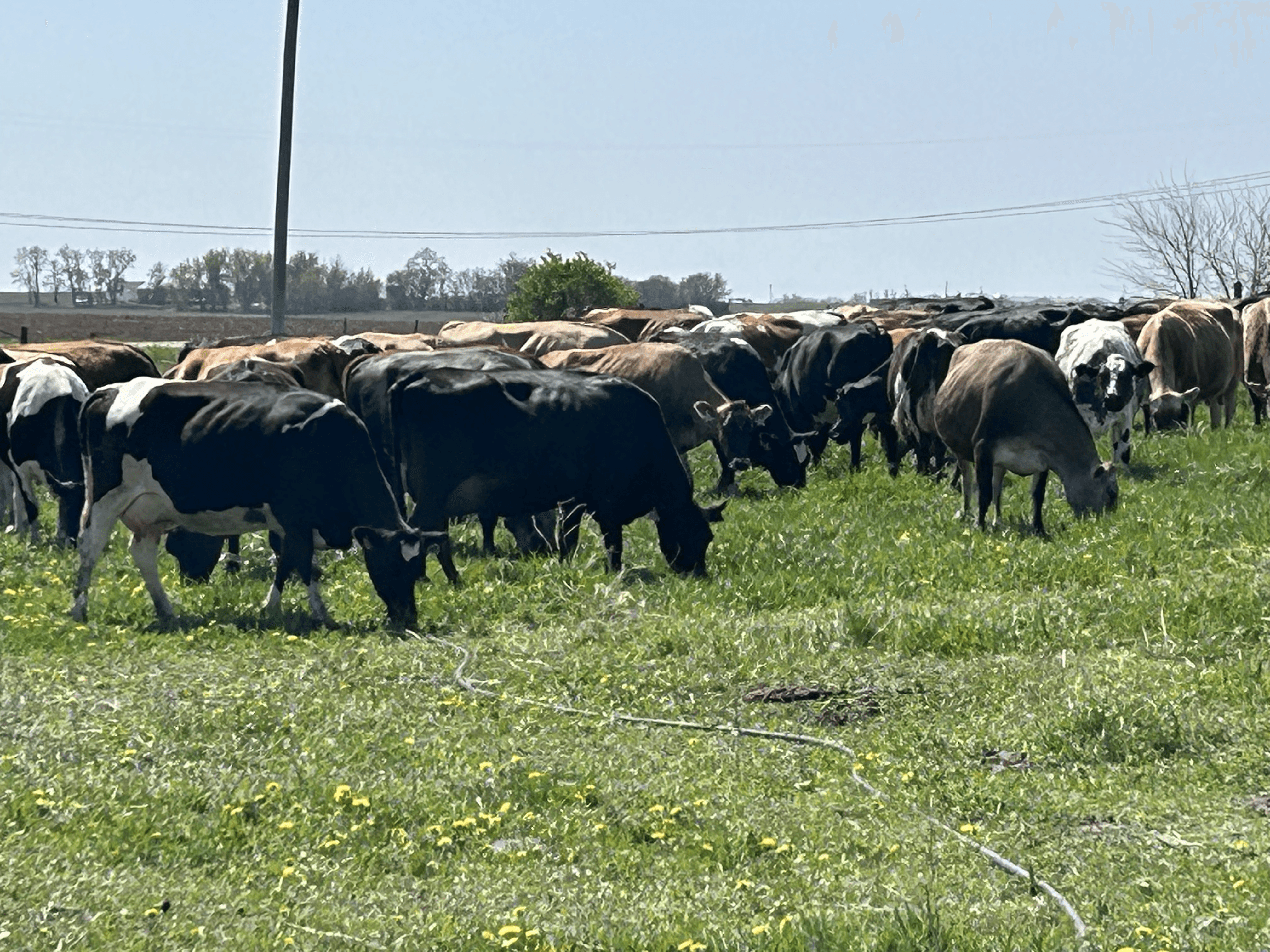
Healthy soils grow healthy grasses for nurturing heathy cows that produce healthy milk.

